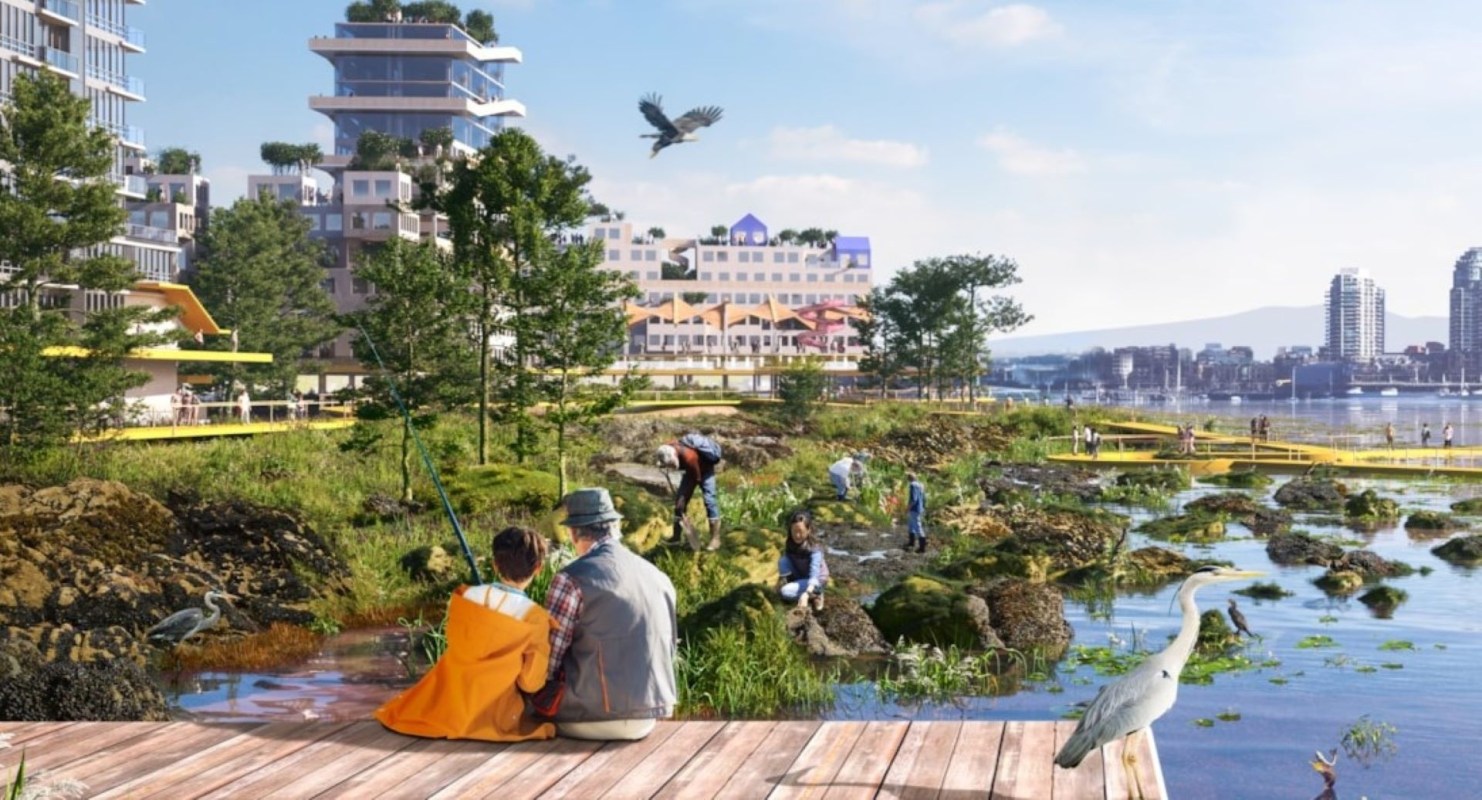As our planet's climate continues to be affected by pollution, extreme weather events are growing more frequent. In coastal areas, that includes flooding.
While the traditional way of trying to mitigate the effects of flooding has been to build flood barriers and dikes — essentially trying to just keep the water out as much as possible — these are expensive and are not long-term solutions as flood levels continue to rise.
Plus, flood barriers and dikes can actually make flooding worse in the long term, as they take away from the shore's natural ability to absorb floodwaters.
"Hard coastal protection can lead to flooding or erosion elsewhere … and the destruction of ecosystems and the coastal protection they offer," reported the Intergovernmental Panel on Climate Change in 2019.
The need to increase cities' resilience to sea level rise is why architecture firm MVRDV collaborated with several other groups to form the North Creek Collective. The team has come up with a proposal to revamp the Vancouver, Canada waterfront, which would work with impending floodwaters instead of against them.
The team was formed to participate in Vancouver's Sea2City Design Challenge, "a collaborative design challenge to rethink the future of the False Creek shoreline." And the solutions that it came up with are pretty futuristic.
These included vertical extensions of flood-adaptive townhouses with community terraces, mid-rise buildings with public spaces that could flood without lasting damage, and mobility hubs built into existing buildings that would connect land- and water-based transport, reported Inhabitat.
In addition, the North Creek Collective drew up plans for floating habitat islands and mixed-use spaces on stilts.
None of these designs will be implemented right away (or at all, necessarily) as the contest was simply meant to inspire ideas and inform the next steps that the city should take. But the fact that Vancouver solicited these types of ideas at all is a positive sign for its future as a city that is embracing the challenge of dealing with climate-related issues.
In that way, Vancouver joins cities such as Pittsburgh and Los Angeles, which have also embraced new technologies and design concepts to mitigate the risks of flooding.
Join our free newsletter for weekly updates on the coolest innovations improving our lives and saving our planet.









